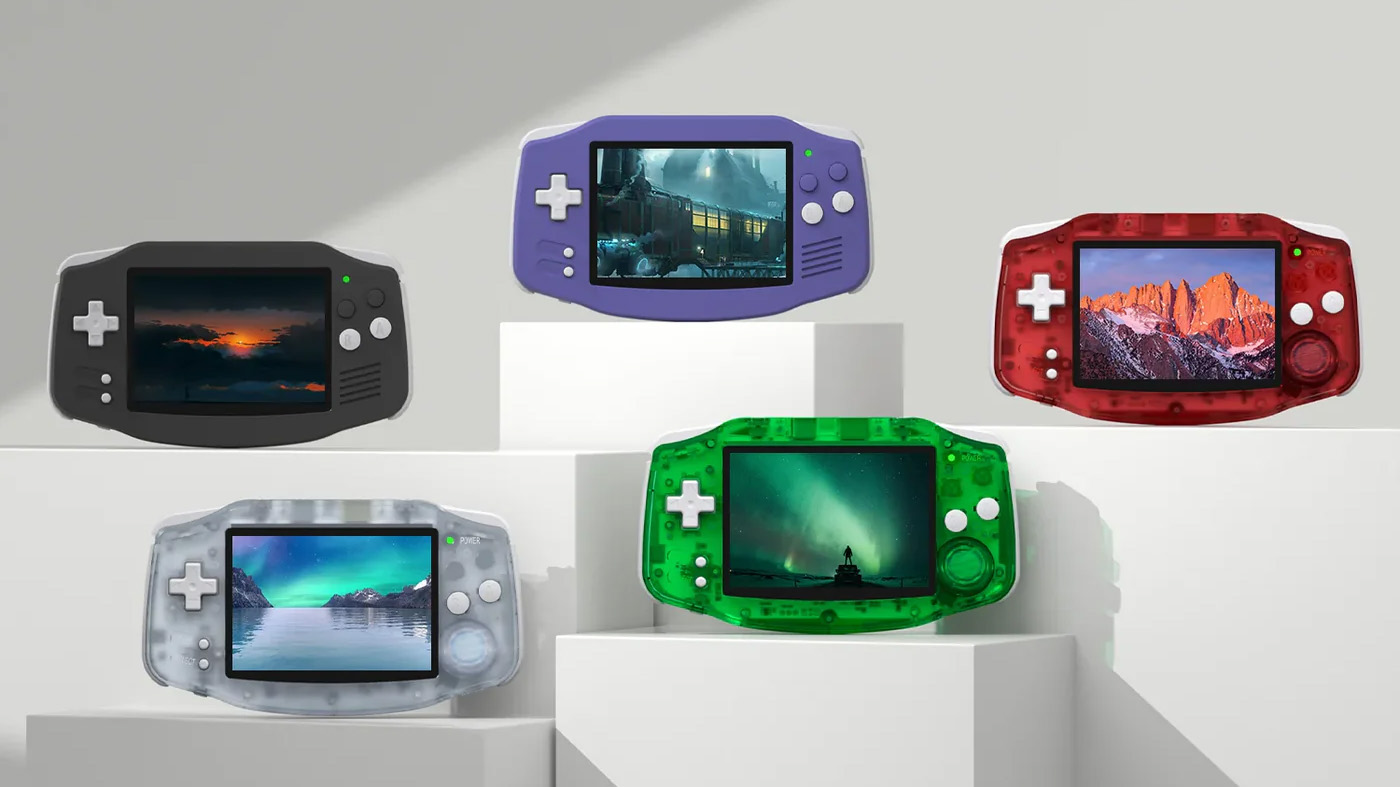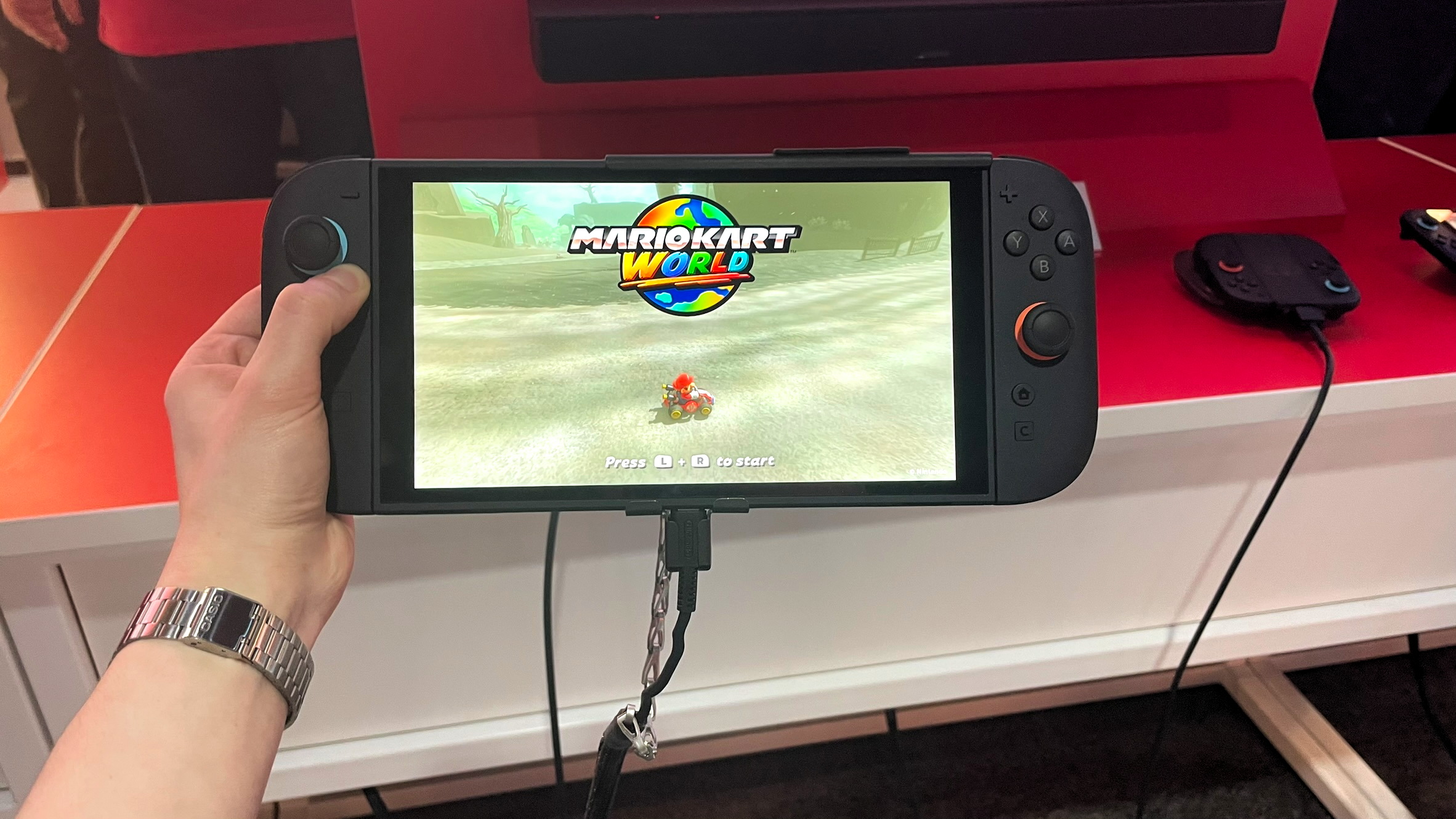
You'd be hard-pressed to find an area of tech that isn't impacted by tariffs right now, and that includes handheld gaming.
On Tuesday, Anbernic, a Chinese handheld gaming company known for its many, many Game Boy clones, said that it's suspending all shipments to the U.S.
The reason? If you guessed heavy tariffs from the Trump administration, congratulations, you win a cookie (assuming it isn't also now subject to heavy tariffs).
"Due to changes in U.S. tariff policies, we will be suspending all orders shipping from China to the United States starting today," said Anbernic in a statement.
"We strongly recommend prioritizing products shipped from our U.S. warehouse, which are currently not affected by import duties and can be purchased with confidence."
While not being able to buy Anbernic handhelds won't be a blow to the masses, the impact of tariffs might be felt beyond niche retro devices.
Is the handheld hot streak over?
Handheld gaming devices might be on a roll right now, but if there's anything that could stop that hot streak, it's tariffs targeting China.
While Anbernic might be the most recent example of tumult, it's far from the most high-profile. Nintendo, though it hasn't adjusted prices on the Switch 2 yet, has suggested that things could change at any moment.
And Nintendo is far from alone. Companies like Ayaeno, for example, which make fairly high-powered handheld gaming PCs, could experience even more fallout since they're a smaller company that's headquartered in China and bases its manufacturing there.
Retro gaming handhelds might even be worse off. Anbernic, for example, makes tons of handhelds that have become well-liked for their Game Boy likeness and cheapness, and they're not the only company pumping out retro handhelds from China.
As noted by Polygon, Retroid, which is another popular purveyor of handheld devices, has also been caught in the tariff chaos and has been rushing to ship devices to the U.S.
Even companies like Analogue, which make the Pocket — a premium-feeling Game Boy clone — which is headquartered in San Francisco, could feel the heat since the devices are still manufactured in China.
Whether any of those two will befall the same fate as Anbernic remains to be seen, but the message is clear: tariffs are here, and lots of handheld gaming devices (both retro and not) are hanging in the balance.

What happens next
While devices made by smaller companies could be heavily affected, there's still a robust ecosystem for handheld gaming, which means the impact might not be as drastic as it seems.
Bigger manufacturers are already finding ways to weather the storm. Nintendo, for example, has been shifting production from its China factory to one in Vietnam to diversify its production.
In short, larger players with the bandwidth to do the same will likely find similar methods of subverting tariffs, though they may be unable to avoid being affected completely.
And for them, the most likely outcome is that they may have to raise prices and bear the burden of more tepid sales or hope that customers pick up the bill.
One thing is for sure, however, and that's that handheld gaming companies — especially smaller ones — may be caught in the storm. Here's to hoping someone else swoops in to fill the Anbernic-shaped hole for retro-hungry U.S. customers.







